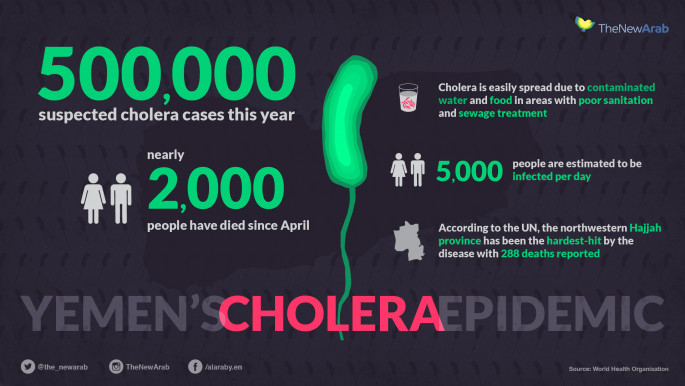Yemen's warring leaders 'more interested in wealth and power' than ending devastating conflict
Yemen has been engulfed in civil war since 2014, when Houthi rebels swept into the capital Sanaa and overthrew President Abed-Rabbo Mansour Hadi's internationally recognised government.
Since a Saudi-led coalition began a campaign to support Hadi's government in 2015 at least 10,000 people have been killed, with over two million displaced.
"In Yemen there are no winners on the battlefield," Ismail Ould Cheikh Ahmed told the UN Security Council.
"The Yemeni people – they become poorer whereas the leaders become richer... They are not interested in finding solutions, as they will lose their power and control in a settlement."
Heavy fighting is continuing in the country as the civil war enters its fourth year, with Ahmed saying the warring parties in the conflict must listen to people and display flexibility.
"The conflict is creating a desperate situation in every facet of daily life," UN envoy Ahmed said.
 |
|
| [Click to enlarge] |
"Future Yemeni generations will suffer and bear the burden of this conflict –including the massive destruction, the malnutrition, the lack of education and the economic deterioration."
The UN says some 15 million Yemenis lack adequate access to clean water and health services, with over seven million facing the threat of famine.
Nearly 500,000 children are severely malnourished while cholera has killed more than 2,100 people in the largest single-year outbreak on record.
Ahmed urged the Security Council "to use all of its political and economic power to exert pressure on all parties to commit to a pact of peace."
The UN envoy said he has been working on "a comprehensive solution" to bring the parties back to the negotiating table and will discuss the details with Yemen's government and the Houthis.
Houthi leaders have refused to meet the UN envoy for months.
Some of the proposed measures include increasing the capacity of the Hodeidah port, reopening Sanaa's airport, getting a nationwide agreement on paying civil servant salaries and addressing the embargo on the city of Taiz.
Members of the Security Council called for an immediate ceasefire and reaffirmed the need for all parties, "especially the Houthis, to engage meaningfully with the UN special envoy's comprehensive proposals for peace."
The council also called for "safe, rapid, unhindered and sustained humanitarian access" to all Yemenis.
Last week, the UN blacklisted Saudi Arabia for killing hundreds of Yemeni children in the bloody airstrikes the Kingdom has been conducting in Yemen for over two years and a half.



